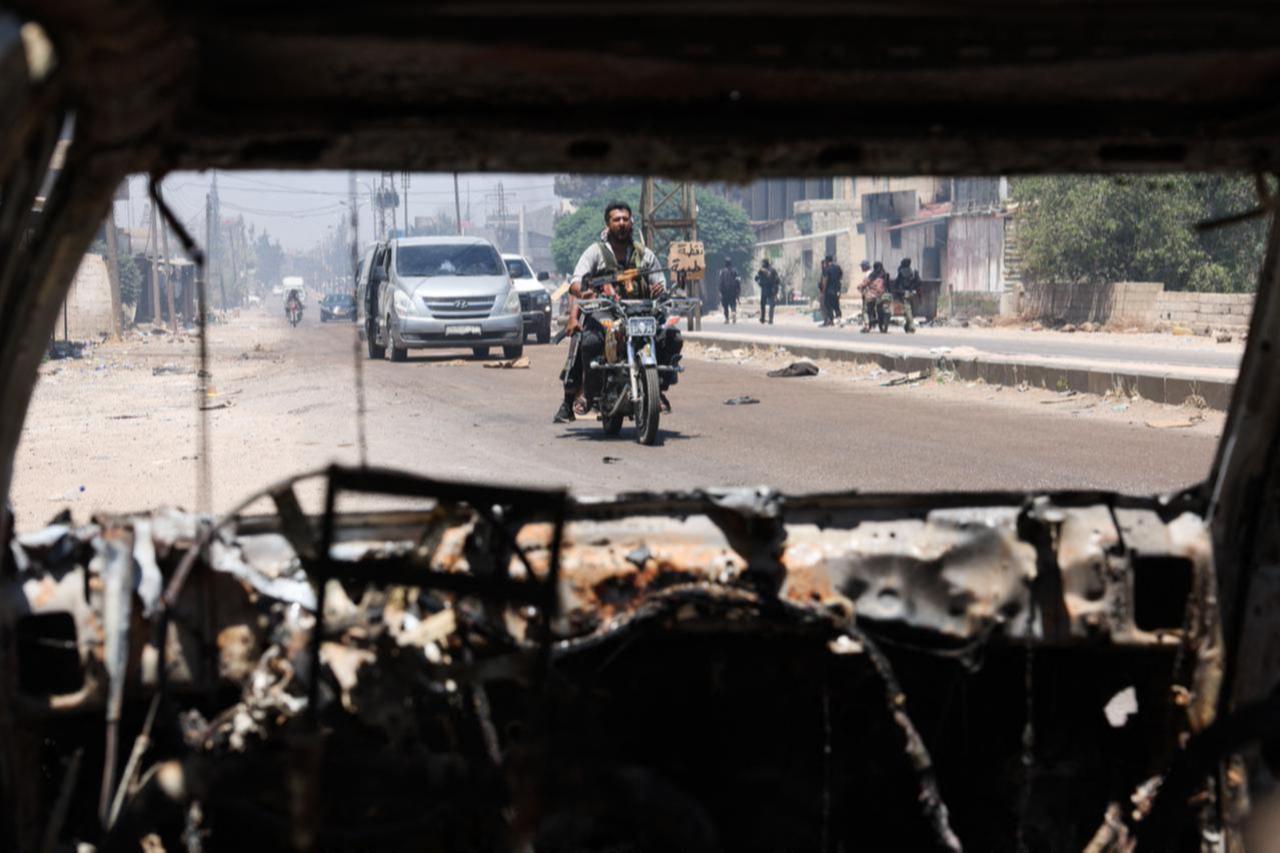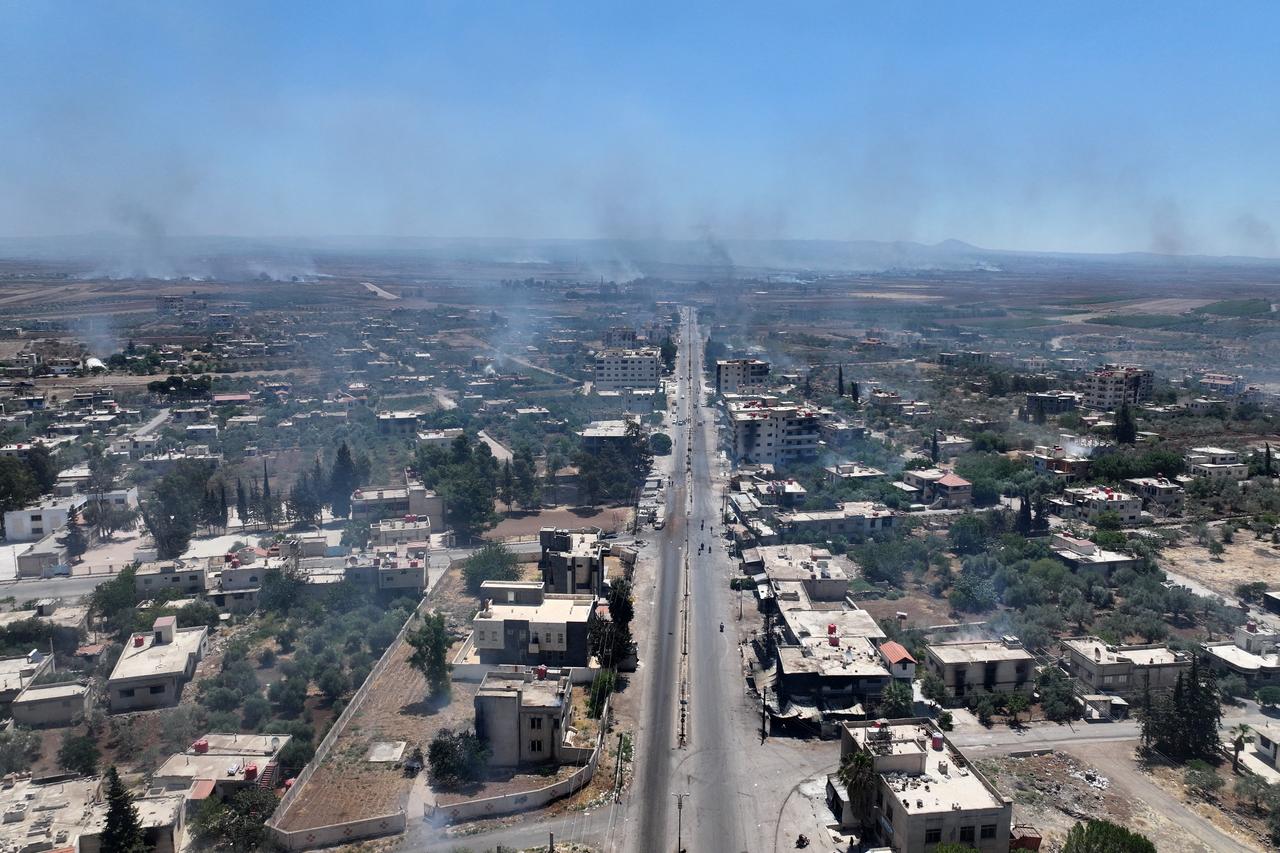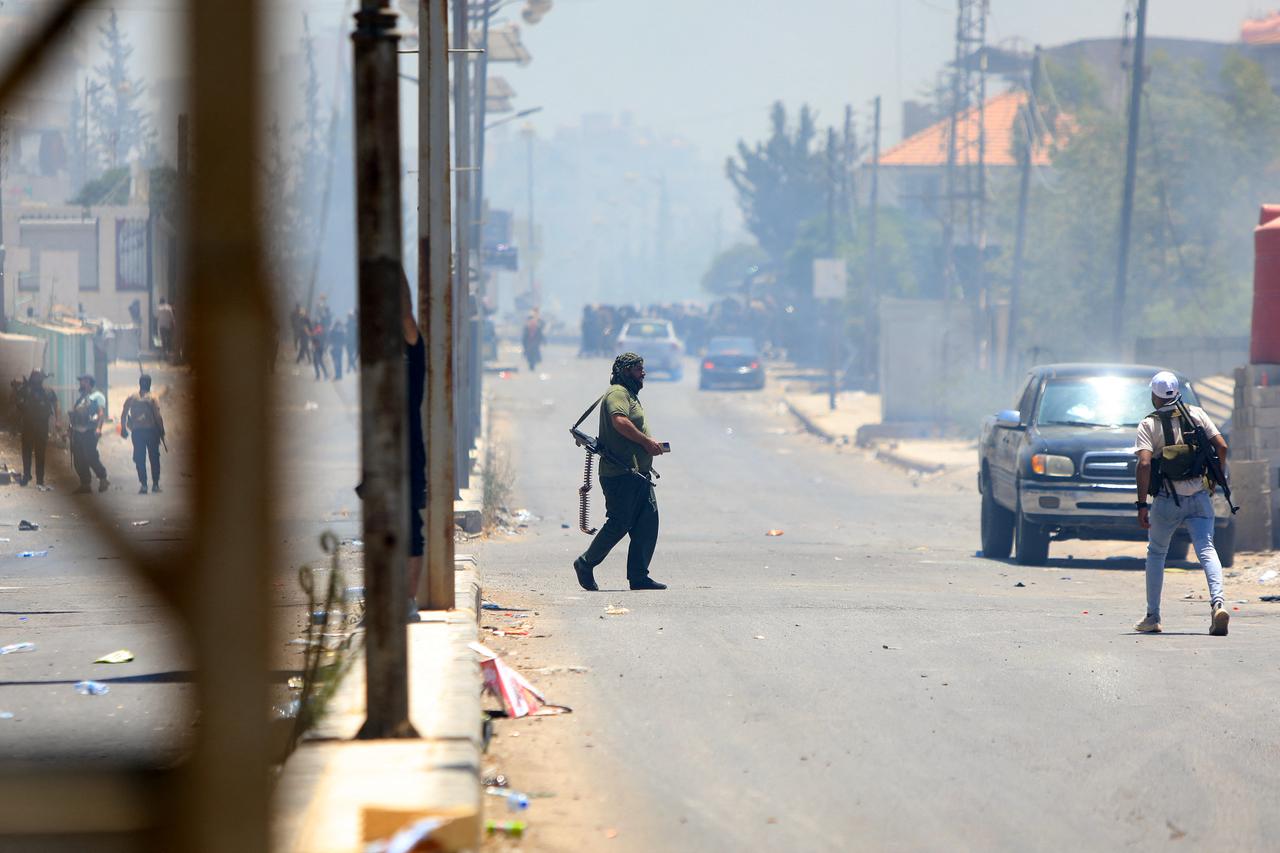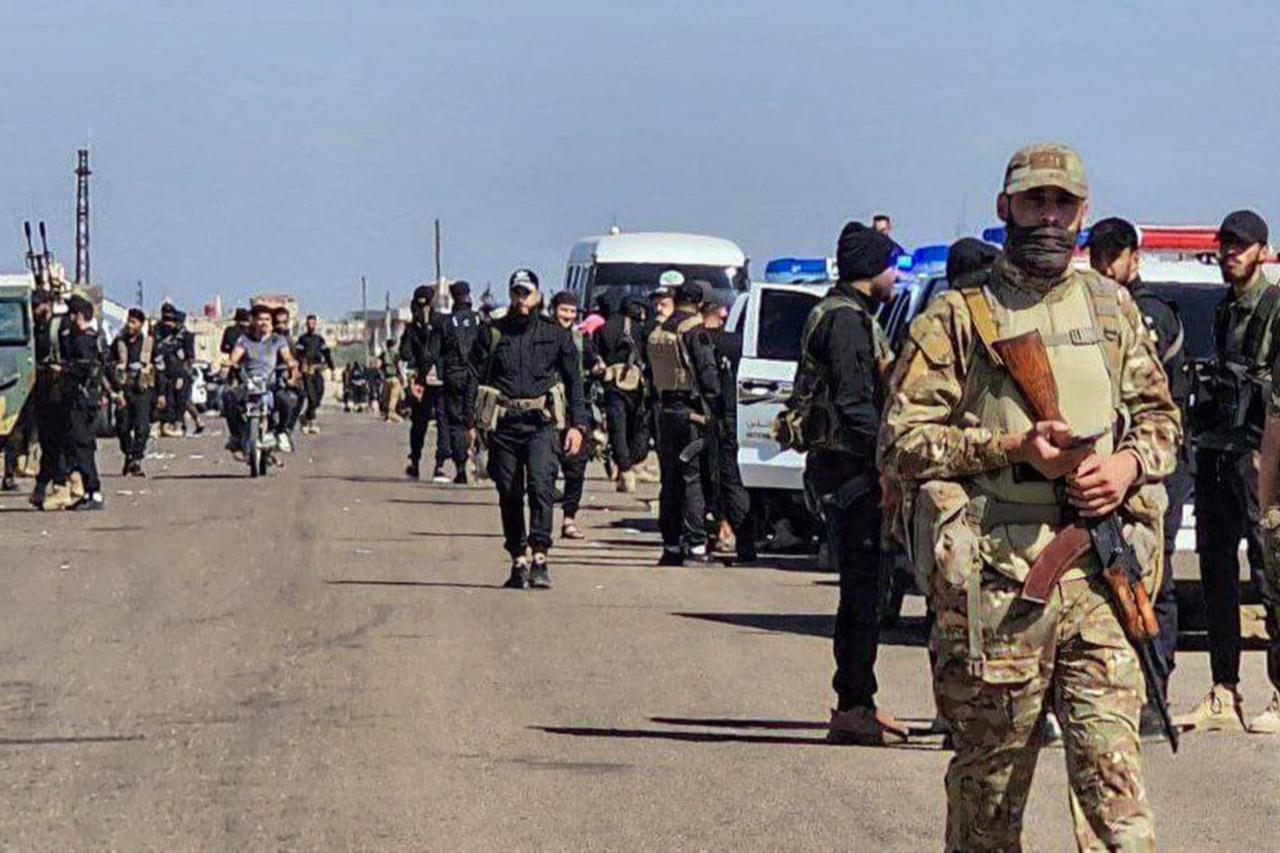
Syrian Interior Minister Anas Hattab announced Sunday that internal security forces have been deployed to northern and western areas of Sweida province and have brought the situation under control following days of deadly sectarian fighting.
The Interior Ministry said in a statement posted on its Telegram channel that the deployment helped implement a cease-fire in Sweida city center and paved the way for prisoner exchanges and the restoration of general stability.
"The deployment of internal security forces in Sweida province is a guarantee of stability and tranquility," the ministry statement said.
"This step is the first toward bringing weapons under control and ensuring security."
Hattab emphasized that the ultimate goal is achieving a comprehensive ceasefire and enabling the state to restore normal life throughout the province, particularly in Sweida.

The current crisis began on July 13 when armed clashes erupted between Bedouin Arabs and some Druze groups in Sweida. Syrian security forces that intervened were ambushed, escalating the conflict.
The fighting was initially halted by a cease-fire, but Druze forces loyal to Hikmat al-Hajri broke the truce, reigniting violence.
On July 16, the Israeli military struck Syrian presidential facilities, the General Staff headquarters, and the Defense Ministry, further complicating the security situation as sectarian fighting raged in the southern province.

As Syrian army forces withdrew from Sweida, Hajri's group began displacing Bedouin families and carrying out executions. Thousands of tribal fighters from outside the area arrived to support the Bedouin Arabs.
Syrian authorities began redeploying security forces to Sweida on July 19, working to remove Bedouin and tribal fighters from the city.

The weeklong conflict has claimed hundreds of lives among both combatants and civilians since July 13, with the actual death toll potentially much higher, with some sources claiming more than 1,000 deaths.
Sweida province, located in southern Syria near the Jordanian border, has a significant Druze population and has experienced periodic unrest since Syria's civil war began in 2011.